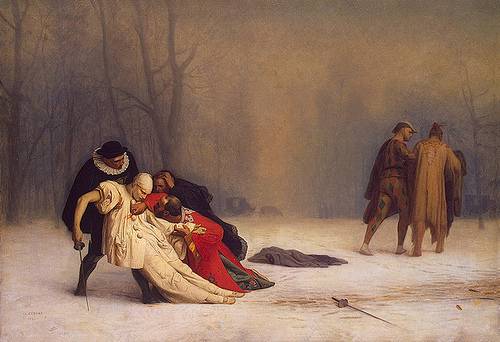
The Arecibo Observatory is the largest single-aperture telescope ever built.
Astronomer Frank Drake calculated the dish would hold 357 million boxes of corn flakes.

The Arecibo Observatory is the largest single-aperture telescope ever built.
Astronomer Frank Drake calculated the dish would hold 357 million boxes of corn flakes.
In 1923, 7-year-old Rosemary Brown said she’d had a vision of a white-haired man in a black gown. “He told me that when I grow up, he would give me music,” she said.
Ten years later she recognized a picture of Franz Liszt. And in 1964, she said he returned, acting “like sort of a reception desk” to put her in touch with dead composers from Grieg to Chopin, who dictated new works to her from beyond the grave.
The classical music establishment gave these mixed marks. Leonard Bernstein and André Previn were skeptical, but Richard Rodney Bennett said, “If she is a fake, she is a brilliant one, and must have had years of training.” (She claimed to have had only three years of piano instruction.) “Some of the music is awful, but some is marvelous. I couldn’t have faked the Beethoven.”
Whatever the truth, the experiment is over now. Brown died in 2001, presumably joining her illustrious friends — and depriving them of an audience here below.
“If only we’d stop trying to be happy we’d have a pretty good time.” — Edith Wharton

Duel After a Masquerade Ball, by Jean-Léon Gérôme (1857).
For all their romance, duels got a bit silly. English poet Mark Akenside escaped a confrontation with a Counsellor Ballow only because one refused to fight in the morning and the other in the afternoon.
In France in 1843, two young men agreed to a duel using billiard balls at 12 paces. Melfant drew the red ball, warned his adversary, “I am going to kill you at the first throw,” and did precisely that, hitting Lenfant in the forehead.
Magnificently, two Frenchmen fought a duel by balloon over Paris in 1808, ascending from the Tuileries and firing blunderbusses at one another. M. de Grandpré sent a ball through M. Le Pique’s balloon, which plunged, killing him and his second. The lady’s response is not recorded.
Suppose some numbers are uninteresting. Put them in a separate class.
But now that class contains a largest and a smallest number. That’s interesting, so move them back into the class of interesting numbers.
You can repeat this until only one or two uninteresting numbers remain — a fact that makes them interesting. So now that class is empty, and all numbers are interesting.
In his Lives (1827), Peter Walker recounts a baffling spectacle seen on Scotland’s River Clyde in the summer of 1686:
[T]here were showers of bonnets, hats, guns, and swords, which covered the trees and the ground; companies of men in arms marching in order upon the water-side; companies meeting companies, going all through other, and then all falling to the ground and disappearing: other companies immediately appeared, marching the same way.
Walker says these reports continued for at least three afternoons, but notes that fully a third of the assembled crowd, including himself, could see nothing. That sounds like a mass delusion, but “those who did see, told what works (i.e. locks) the guns had, and their lengths and wideness, and what handles the swords had … and the closing knots of the bonnets.” Make up your own mind.
psaphonic
n. planning one’s rise to wealth and fame

In 1938, Stefan Banach proved that it’s always possible to slice a ham and cheese sandwich in half such that each half contains the same amount of bread, cheese, and ham.
It’s called the ham sandwich theorem.
When Scogin was banished out of France, he filled his shooes full of French earth, and came into England, and went into the king’s court, and as soone as he came to the court, the king said to him: I did charge thee that thou shouldest never tread upon my ground of England. It is true, said Scogin, and no more I doe. What! traytor, said the king, whose ground is that thou standest on now? Scogin said: I stand upon the French king’s ground, and that you shall see; and first he put off the one shooe, and it was full of earth. Then said Scogin: this earth I brought out of France. Then said the king: I charge thee never to looke me more in the face.
— Scoggin’s Jests, 1626